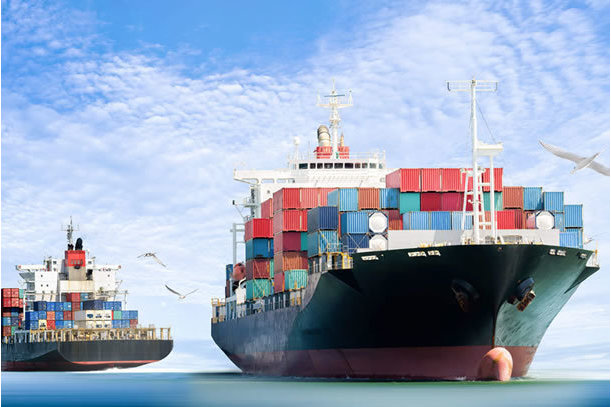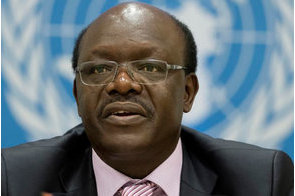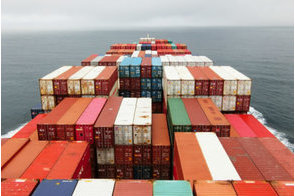Latest News
New report identifies $1.6 trillion in trade misinvoicing

News Highlight
While the value gaps are only estimates of misinvoicing, they indicate the scale of the problem, GFI said in a statement it sent to Financial Nigeria announcing the launch of the report.
A report published today by Global Financial Integrity (GFI), a Washington, D.C.-based think tank, producing high-calibre analyses of illicit financial flows, finds an estimated US$1.6 trillion in potential trade misinvoicing among 134 developing countries, of which US$835 billion occurred between developing countries and 36 advanced economies, in 2018.
This report, “Trade Related Illicit Financial Flows in 134 Developing Countries 2009-2018”, shows trade misinvoicing is a persistent problem across developing nations, resulting in potentially massive revenue losses and facilitating illicit financial flows across international borders.
GFI’s President and CEO Tom Cardamone said that “during a time when developing countries are scrambling for every penny to fund vaccines and medicines to fight COVID-19 infections, billions of dollars in duties and taxes are going uncollected. It is absolutely shocking,” he continued, “how few governments are paying any attention to these massive losses.”
According to GFI, trade misinvoicing occurs when importers and exporters deliberately falsify the declared value of goods on invoices submitted to customs authorities. This allows traders to illegally move money across international borders, evade tax and/or customs duties, launder the proceeds of criminal activity, circumvent currency controls, and hide profits in offshore bank accounts.
Value gaps, or mismatches in international trade transactions, indicate that developing countries are not collecting the correct amount of trade-related taxes and duties that are owed, leading to potentially massive amounts of revenue losses. While these value gaps are only estimates of misinvoicing, they indicate the scale of the problem, GFI said in a statement it sent to Financial Nigeria announcing the launch of the report.
In order to identify potential trade misinvoicing, GFI examined official trade data reported to the United Nations to identify value gaps, or mismatches, in the data regarding what any two countries reported about their trade with one another. While there are reasons for some mismatches to regularly show up in the international trade data, GFI believes that the majority of the gaps identified are indicative of trade misinvoicing activity. GFI looked at all bilateral trade data for 134 developing countries, as well as trade between those countries and 36 advanced economies.
As part of the report’s findings, the developing countries with the largest value gaps identified in trade with 36 advanced economies in 2018 are China (US$305.0 billion), Poland (US$62.3 billion), India (US$38.9 billion), Russia (US$32.6 billion) and Malaysia (US$30.7 billion). The developing countries with the largest value gaps identified in trade with 36 advanced economies in 2018 as a percentage of total trade are The Gambia (45.0%), Malawi (36.6%), Suriname (31.9%), Kyrgyzstan (30.6%) and Belize (29.2%).
The report’s key recommendations at the national level include that countries should make trade misinvoicing illegal; strengthen law enforcement capacities of customs authorities; establish multi-agency teams to address customs fraud, tax evasion and other financial crimes. It also recommends implementation of readily available trade misinvoicing risk assessment tools, strengthening of customs oversight of Free Trade Zones (FTZs), and establishing National Trade Facilitation Committees.
At the international level, the report recommends that countries should work together to expand information-sharing between importing and exporting countries and explore the use of distributed ledger technology to identify trade misinvoicing.
GFI hopes this analysis will help developing countries understand the magnitude of trade misinvoicing activity and the potentially massive revenue losses they are incurring due to uncollected taxes and duties. Taking concrete steps to reduce trade misinvoicing is necessary to address the broader problem of illicit financial flows across international borders, GFI’s statement concluded.
GFI also advises governments on effective policy solutions. Its work promotes pragmatic transparency measures in the international financial system as a means to improve global development and security and reduce inequality.
Related News
Latest Blogs
- Assessing the National Policy on Marine and Blue Economy
- When the intent of taxation reset diverges from its execution
- Towards healthcare system that protects patients and is fair to practitioners
- Outlook on 2026 global remittances and Nigeria
- Putting food at the centre of Nigeria’s health reform
Most Popular News
- Artificial intelligence can help to reduce youth unemployment in Africa – ...
- NDIC pledges support towards financial system stability
- Grene Capital spins out of Actis as independent real asset fund manager
- Cairo events focus on Africa’s asset integrity and cybersecurity
- Cuts to donor funding threaten the right to health
- Afreximbank ends its credit rating relationship with Fitch









